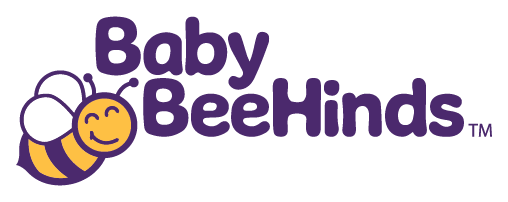With so many mixed messages about nutrition in the ‘adult’ world it can become very confusing and somewhat overwhelming when it comes to making the best nutritional choices for our children. But unless your child has special dietary needs it shouldn’t be that complicated. Just as there are many different cloth nappy ‘systems’ to choose from, there are many ways you can ensure your child remains well-nourished (but there no ‘one size fits all’ option here!) and the basic nutritional principles remain the same.
In the preconception stage it is important to ensure you are taking a folate + iodine supplement specific to pregnant women and this should continue throughout pregnancy or as discussed with your caregiver. During pregnancy you need extra vitamins and minerals that can largely be obtained by including a variety of fresh, minimally processed foods across all core food groups, without the need for expensive supplements. Whilst a lot of us would love to think we need to consume the calories for two, the energy requirements during pregnancy only increase slightly so focus on eating adequate nutrient dense foods. Breastfeeding is when your calorie requirements hike up (so does your appetite!) but the extra fat stores laid down in pregnancy help to meet these. Rather than reaching for the extra chocolate and sweet biscuits, try to keep some easy but nourishing snacks on standby like mixed nuts, natural yoghurt or get someone to fix you a nice fruit smoothie as you will be extra thirsty too!
The World Health Organisation recommends exclusive breastfeeding for the first 6 months of life and the introduction of complementary foods thereafter. Breastfeeding is a learned skill for both mother and baby so seek help early if you need extra support to help establish breastfeeding from a lactation consultant or the Australian Breastfeeding Association. All your baby needs to be well nourished for 6 months is supplied by your own milk or a suitable infant formula. Breastmilk will continue to be your baby’s main source of nourishment for the first 12 months.
Around 6 months of age introduce solid foods to your baby. Signs of ‘readiness’ to eat include baby sitting with support, good head control and actively taking an interest in others eating including opening mouth when food is offered. You can opt for the traditional purees, or the ‘baby led weaning’ approach is becoming increasingly popular as a more logical progression of weaning, especially for a baby breastfed on demand, as it allows your baby to dictate their own readiness for food and to wean at their own pace. By 6 months a baby has lost the ‘extrusion reflex’ (tongue thrust), has the ability to ‘chew’ (with no or little teeth) and can safely move food from the front to the back of their mouth. Allowing your baby to self-feed nourishing family foods helps with fine motor skill and speech development, encourages family mealtimes (you are your child’s best role model when it comes to eating), exposes your baby to a variety of flavours and textures and there is no need to prepare a special meal just for your baby! If you prefer to introduce your baby to pureed foods to begin with, homemade is best from fresh ingredients and be sure to readily progress to more textured and finger foods to encourage self-feeding.
There is no specific order in which to introduce certain foods (unless your child has food allergies or intolerances) and iron rich foods such as meat, chicken, fish, legumes are encouraged from 6 months as an infant’s iron stores start to decline around this age. Under the age of 1, solid food should encourage play and exploration (allow for lots of mess!), not just nutrition, so try not to focus so much on how much your baby is eating compared to others, each progresses at their own pace depending on when and how you introduce solids. Remember breastmilk or suitable infant formula will continue to make a significant contribution to meeting nutritional requirements in the first year of life.
As your baby quickly grows up, continue to offer a variety of foods across all core food groups, involve your child in the food preparation (why not grow your own fruit and veg?) and encourage family mealtimes as much as possible. Breastfeeding is encouraged into the second year of life for as long as mother and baby desire and the benefits remain as long as the breastfeeding relationship continues. If your child has special dietary needs be sure to follow the advice of your health professional.
For further reference refer to these great resources from The Royal Children’s Hospital: http://www.rch.org.au/nutrition/resources/
Jamie Errico, Paediatric Dietitian & super fabulous Melbourne Metro BBH Consultant
Baby BeeHinds Consultant, Melbourne Metropolitan Region
www.facebook.com/babybeehindsmelbmetro
Email: [email protected]
Mobile: 0432 286 778

